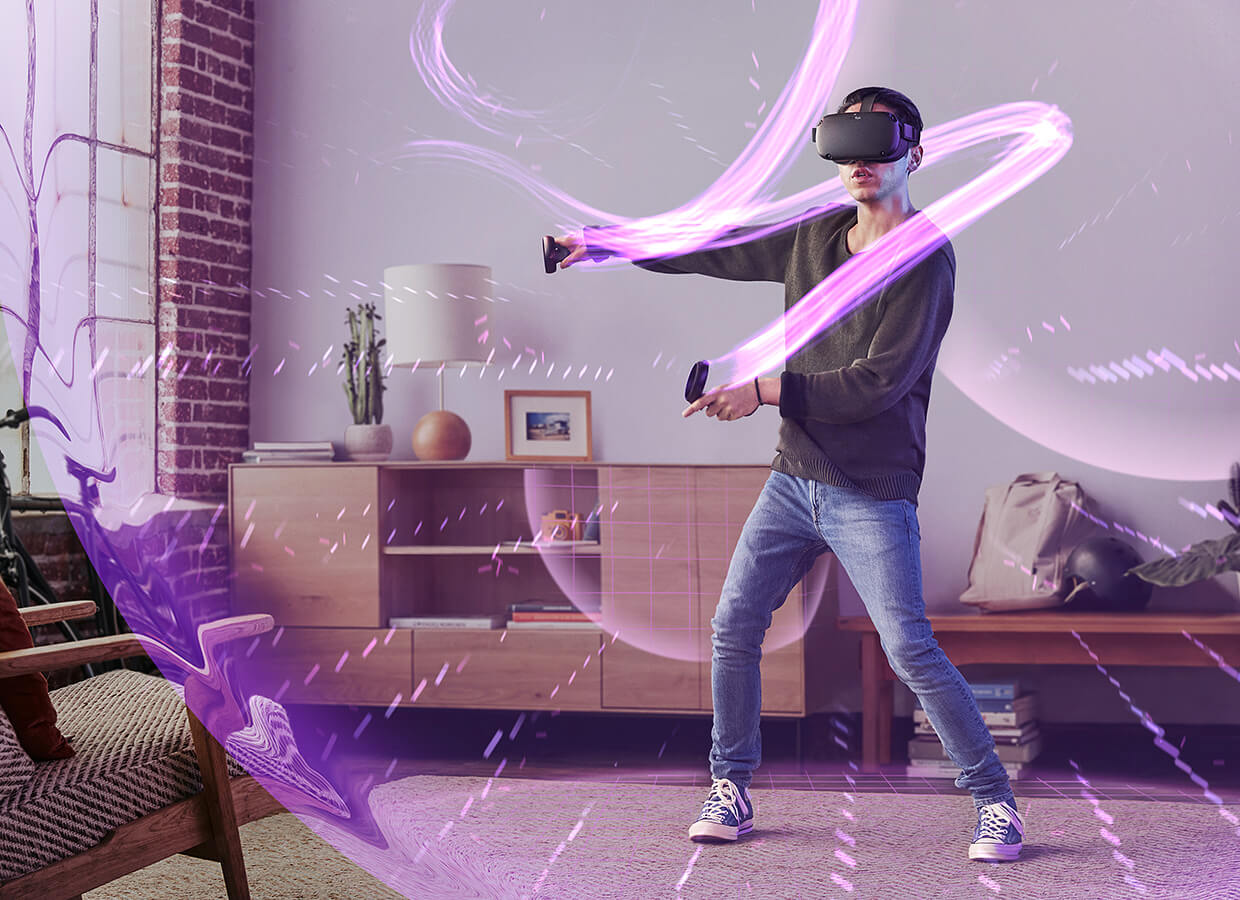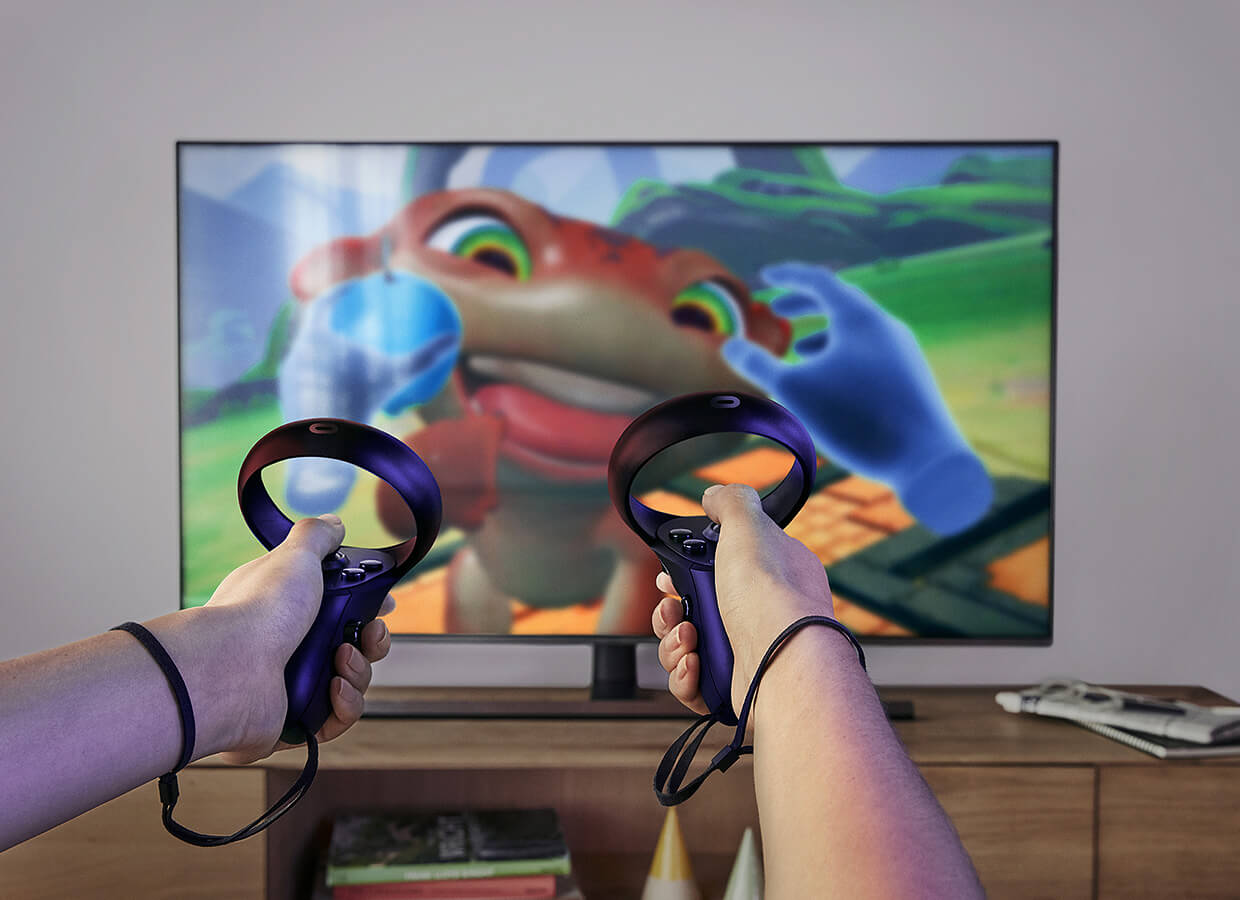December 12, 2018
First teased under the name of ‘Project Santa Cruz’, the Oculus Quest is a new VR headset from Oculus set to be released early next year in spring 2019 for around $399. In this blog, we’ll layout everything you need to know about the Oculus Quest and why it’s so important for the VR industry.
The Facts
The Oculus Rift has been a key figure in the VR space for a while, rivalling the HTC Vive, with both being powerful piece of hardware for games and other applications. The Oculus Rift is a powerful piece of hardware which dominates the VR market. Recently in 2017, Oculus released the Oculus GO, a standalone VR headset which requires no other hardware. The GO appealed to a market for those not able to purchase VR headset like the Oculus Rift or HTC Vive, either due to lack of money, space or interest. With the Quest, Oculus is attempting to strike a middle ground with the Quest. The Quest is not as powerful as the Rift but has far greater capability, with the games available on the Rift playable on the Quest. Although not as powerful as the Rift, Quest users are still able to play games such as Superhot VR and Robo Recall.

Oculus Quest Vs Oculus Rift Vs Oculus Go
The Oculus Quest has been hotly anticipated due to the fact it is a standalone VR system. In basic terms, this means that the Oculus Quest doesn’t require a PC in which to run from, like the Oculus GO. Similarly, the Quest, like the GO, is completely wireless and requires no other external hardware. Another of the Quests key aspects is that it boasts 6 degrees of freedom (6DOF). Six degrees of freedom means that users of the quest can move around their environment in full 360 degrees, moving forwards, backwards, up, down, left and right. In comparison, users of the Oculus GO can only look around by tilting and rotating their head statically. Whilst the Rift has the guardian system that involves mapping out a room to define the play space, the Quest has what Oculus describes true room scale. The Quest, rather than using sensors which the Rift uses, has sensors which tracks the players position as well as the previous guardian system. The Quest also has a new controller which resemble the multifunctional Rift controller. Having the same buttons and thumb sticks as the Rift, the Quests controllers have the tracking ring on the side of the controller to enhance the tracking of the controller.

Impact on the VR industry
The Oculus Quest has the potential to present a VR experience that combines the portability and price tag of the Oculus GO with the hardware power and games library of the Oculus Quest. Many of the issues of the consumers who have yet to purchase their first VR headset may have had been solved with the release of the Oculus Quest. The fact that users don’t have to buy an expensive PC and priced the same amount as Rift means that those unwilling or unable to pay for a Rift may be able to make their first foray into VR. Ultimately, being able to have a complete VR gaming experience without the expense of additional hardware like sensors or more importantly an expensive gaming PC, this potentially gives people access to VR and appeal to consumers who may not have interest in the past.

Oculus has long been an industry leader in the VR space, here at Pocket Sized Hands we’re excited about the potential of the Oculus Quest and the type of experiences we can create for the platform.
If you have an idea you want created get in touch with us and we can bring it to life. Whether it’s a quick prototype, a full product or even just to brainstorm, our team will be here to help. From the beginnings of your prototype to the final product we can support you with professional advice and delivery.





